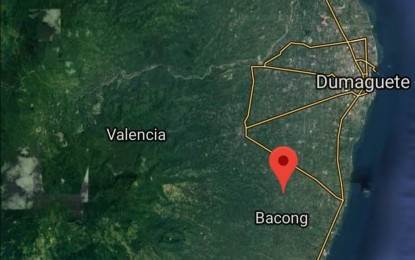
(Google map of Bacong, Negros Oriental)
DUMAGUETE CITY -- The Negros Oriental Chamber of Commerce and Industry (NOCCI) is assisting the local government unit (LGU) of Bacong in Negros Oriental in determining the property owners who will be affected by the proposed new airport project of the government.
On Tuesday, Bacong local officials led by Mayor Lenin Alviola met with NOCCI executives to begin discussions on the identification and survey of households and land in the barangays where the new airport will be built, said Edward Du, regional governor for Central Visayas of the Philippine Chamber of Commerce and Industry (PCCI) and NOCCI past president.
Du said the survey is required prior to negotiations with the owners of houses and lands that the government may have to acquire or expropriate for public use with the building of the new airport.
Initially, the government has allocated PHP300 million for the acquisition of land for the airport to include right of way, among others, Du said.
The airport project will initially require at least 170 to 180 hectares of land, and is eyed for construction in the villages of Combado and Isugan and adjacent areas, he added.
Asked about NOCCI’s role in the project, Du said they will assist in the appraisal of the properties that stand to be affected and to give the initial estimates “to find out if the budget of PHP300 million is enough or not.”
Also, NOCCI has a stake in the project because some of its members own properties in the proposed new airport site, he said.
The Dumaguete-based businessman said there is still no clear picture of how many landowners and houses will be affected by the airport project even as many residents of Bacong have already expressed fear of losing their properties to the government in exchange for a low price.
Du, in response to this, said that NOCCI’s role is to help in the negotiations to come up with a “fair price” that would not be too high for government nor too low for the property owners.
“We need to know how many lot owners have houses, how many have coconut or other trees, how many have improvements, etc. so that when negotiations start, we know how to negotiate, and we must have a database,” Du said.
Those with houses will be prioritized because they will be displaced, he added. (PNA)
